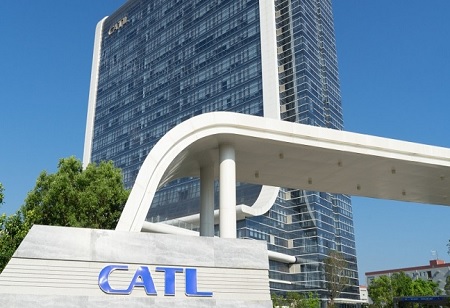
Net profit for Chinese manufacturer CATL jumped 93% last year to 30.7 billion yuan ($4.41 billion) as the world's largest supplier of electric vehicle batteries enjoyed a surge in deliveries that offset headwinds from higher raw material prices.
Revenue for 2022 grew 150% to 328.5 billion yuan, the company formally known as Contemporary Amperex Technology Co. Ltd. reported late Thursday. CATL's mainline automotive battery business drove group earnings.
Annual revenue from the energy storage business was CNY45 billion, an increase of 230 percent from 2021. CATL’s share of the global market jumped 5.1 percentage points to 43.4 percent in the period, according to SNE Research data. In the fourth quarter, CATL’s net profit growth slowed, climbing 61 percent to CNY13.1 billion from a year ago, versus increases of 131 percent and 164 percent in the third and second quarters. Revenue was CNY118.3 billion, up 108 percent.
The global penetration rate of new energy vehicles has huge room for improvement and demand is expected to surpass expectations this year because of price cuts and the recovery in carmakers’ supply chains, Haitong International Securities said. CATL’s cost controls and technical advantages will continue to lead, and the growth rate of its overall shipments will likely remain top of the industry for a long time, the brokerage added.
CATL also reassured investors about a series of concerns. Its cooperation with Ford Motor in the US is advancing, a module and battery cell plant in Germany has achieved mass production, a factory in Hungary is under construction, and the rectification of the lithium industry in China’s Yichun, known as ‘Asia’s lithium capital,’ has no impact on the firm’s local project, it said.
Sodium-ion batteries and M3P batteries should achieve mass production this year, CATL predicted, adding that the exact scale will depend on customer orders. In response to recent attempts to cooperate with customers to supply batteries in larger batches at lower prices, CATL said lithium mine sharing is not intended to cut prices but to share mineral resources with long-term strategic clients, as the company does not want to gain massive profits from that.
CATL believes that recent fuel vehicle price cuts is mainly because of the upgrade of the sixth version of the national emission requirements, while that of NEVs is mostly due to the gradual decline in upstream raw material prices to a reasonable range.